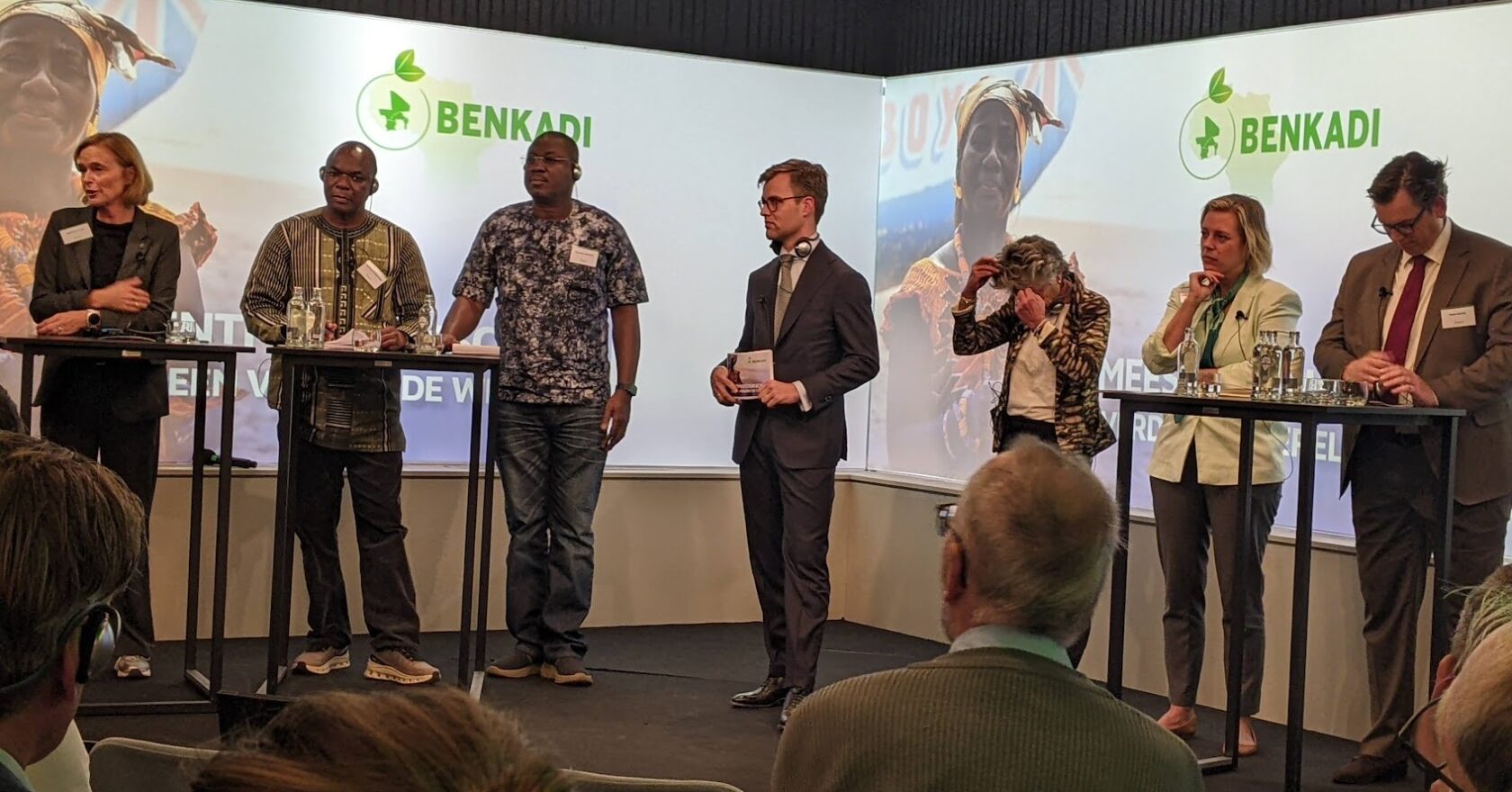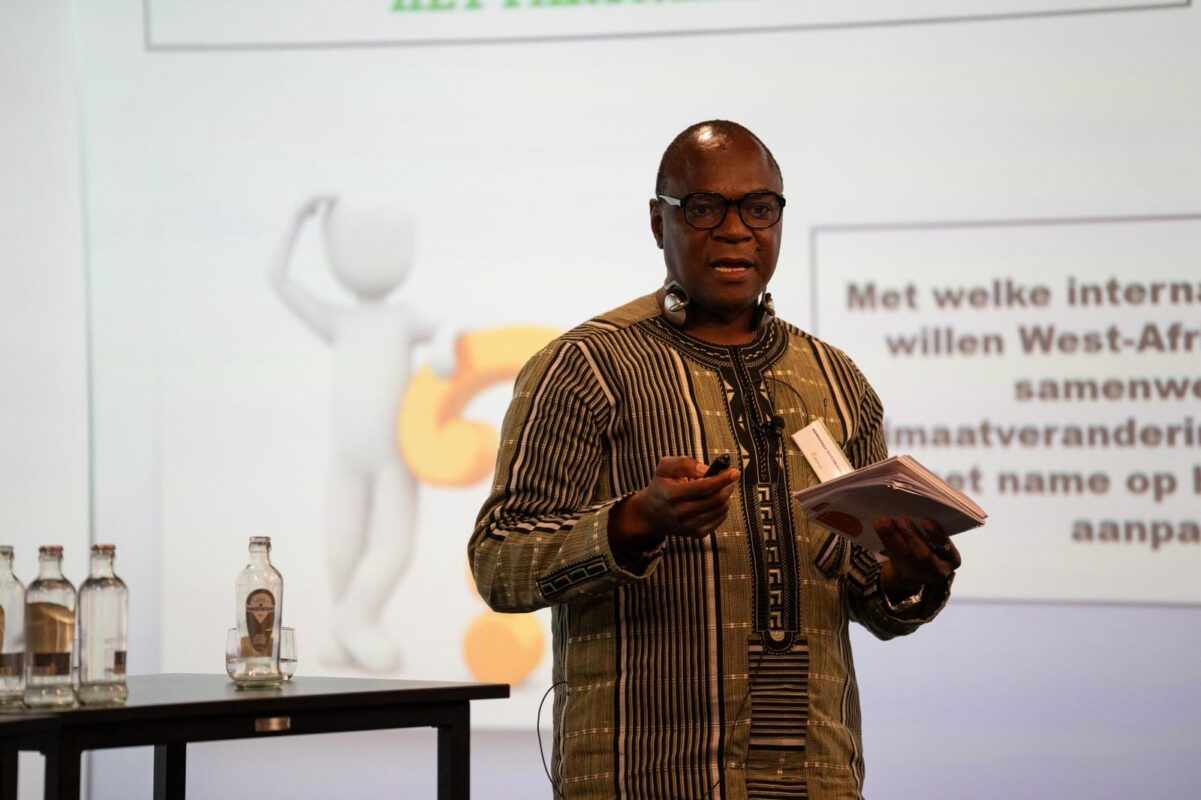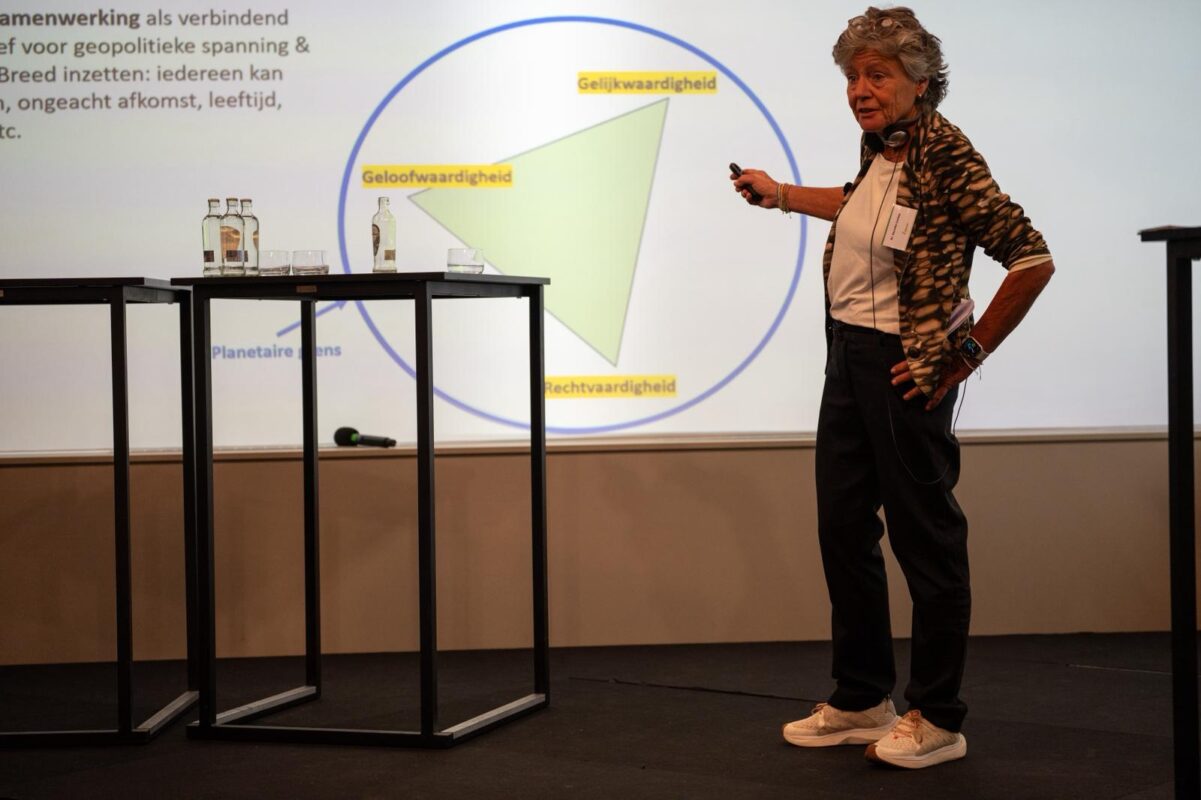The symposium marked the conclusion of the five-year Benkadi partnership in West Africa, in which Woord en Daad is one of the partners. Central to the event was the message that stewardship requires collaboration on climate and sustainability, especially now that the world is more divided than ever.
In a packed hall in The Hague, Dorette Corbey, member of the Advisory Council on International Affairs, quoted Pope Francis, who had called for “faith in a global ecological conversion.” Striving for a fair, climate-just distribution of burdens and opportunities, she said, “is not a luxury, because change is simply urgently needed.”
She pointed out that solutions are sought from different perspectives. “Europe wants a fair market, while Africa points to the ‘historical debt’ of industrialized countries.” Corbey criticized the “Western arrogance” that does not contribute to building connections. She called for justice, credibility, and equality in the debate. “Faith plays an important role in achieving equality.”
Climate Justice
The symposium emphasized the need for justice. The countries that have contributed the least to emissions, such as many African nations, bear the heaviest burdens. A Dutch citizen emits on average forty times more than a Tanzanian. And in the Netherlands, for example, there are twice as many solar panels as in the whole of Africa. Corbey therefore spoke of a “triple climate injustice.”
Sylvestre Tiemtore, a partner from Burkina Faso, responded: “Africa is more a victim than a cause. That is a sad conclusion. But we cannot remain stuck in words. African countries do not have the luxury of carrying out major changes on their own. We need each other.”
Panel Discussion
In the panel debate, a broad call for international solidarity was voiced. “We must not only focus on our own tiny patch and keep our own backyard clean,” said Pieter Grinwis (Christian Union MP). He spoke out against “climate colonialism,” in which the Global South continues to suffer under Northern priorities. “Stewardship is not a casual hobby, but a mandate.” He recalled the floods of 1953. “When a dike was threatened, the sea level suddenly dropped because another dike elsewhere had broken, but only for a short time. That is what this symposium makes me think of. We clean up our own climate backyard but forget that elsewhere the dikes are breaking. That must change and it can change. We must seek cooperation at the local level.”
CDA MP Ingeborg ter Laak asked aloud: “What kind of world will we leave to our children? Stewardship is not a choice, it is a necessity. Pollution does not stop at borders.” She too pointed to the importance of joint action by the Global North and South. “The European Union must take the lead in seeking international solidarity.”
Beyond major political issues, the conversation also turned to practice. With passion, Abdoulaye Ouedraogo, chair of the Benkadi steering group, stressed the importance of giving young people and women an active role. “Partnerships must be friendly and concrete. Avoid a top-down approach, make sure plans make a real difference locally, otherwise they remain just words.”
Looking Back on Benkadi
The symposium also reflected on the results of the Benkadi program, in which Woord en Daad and African partners work on climate justice and local solutions. The lessons from that program underline how crucial it is that communities themselves take ownership of change. The results show that local communities are indeed resilient, provided they receive the right support.
The speakers agreed that the challenges are immense. International cooperation is under pressure, political promises often remain unfulfilled, and geopolitical tensions complicate agreements. That requires courage. Grinwis: “When the going gets tough, we must not throw climate financing out the window. When you’re facing headwinds, you just have to pedal harder.”
Image: Woord en Daad / Antonie Treuren


